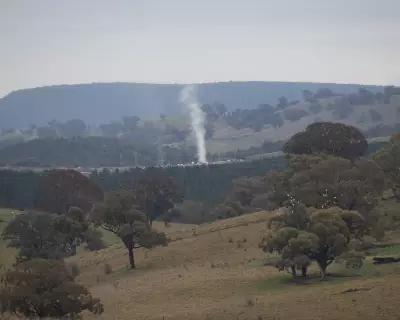
Japan has taken the extraordinary step of deploying its military to combat a terrifying wave of bear attacks that has left communities living in fear and resulted in multiple fatalities. The escalating wildlife crisis has prompted the government to authorise troops from the Self-Defence Forces to support local authorities in containing what experts are calling an unprecedented emergency.
Rural Communities Under Siege
Northern regions, particularly Akita and Fukushima prefectures, have become hotspots for aggressive bear behaviour, with reported incidents skyrocketing by 60% compared to previous years. Local residents describe being afraid to venture outdoors, while farmers report devastating losses to livestock.
The situation has become so dire that schools in affected areas have cancelled outdoor activities, and elderly residents - who comprise a significant portion of rural populations - are essentially trapped in their homes during daylight hours.
What's Driving the Crisis?
Wildlife experts point to a perfect storm of environmental factors creating this emergency:
- Food scarcity in natural habitats due to poor harvests of acorns and beech nuts
- Climate change impacts altering traditional foraging patterns
- Encroaching urban development reducing bear territory
- Growing bear populations following conservation successes
"We're witnessing a fundamental breakdown in the human-wildlife boundary," explained Dr Kenichi Yamamoto, a leading wildlife biologist. "Bears that would normally avoid human contact are becoming increasingly desperate and bold."
Military Intervention Strategy
The deployed troops are implementing a multi-pronged approach to restore safety:
- Establishing secure perimeters around vulnerable villages
- Conducting patrols and surveillance operations in high-risk areas
- Assisting with the installation of emergency warning systems
- Supporting wildlife experts in tracking and relocation efforts
Defence officials emphasise this is primarily a support and deterrent operation, though troops are equipped for worst-case scenarios. The deployment represents one of the largest military responses to a wildlife crisis in Japan's modern history.
Long-term Solutions Needed
While the immediate military presence is providing relief to terrified communities, conservationists warn that lasting solutions require addressing the root causes. Proposed measures include habitat restoration projects, improved waste management to reduce attractants, and community education programmes about coexistence strategies.
The current crisis serves as a stark reminder of the delicate balance between human development and wildlife conservation, with Japan now facing the challenging task of protecting both its citizens and its native bear population.





